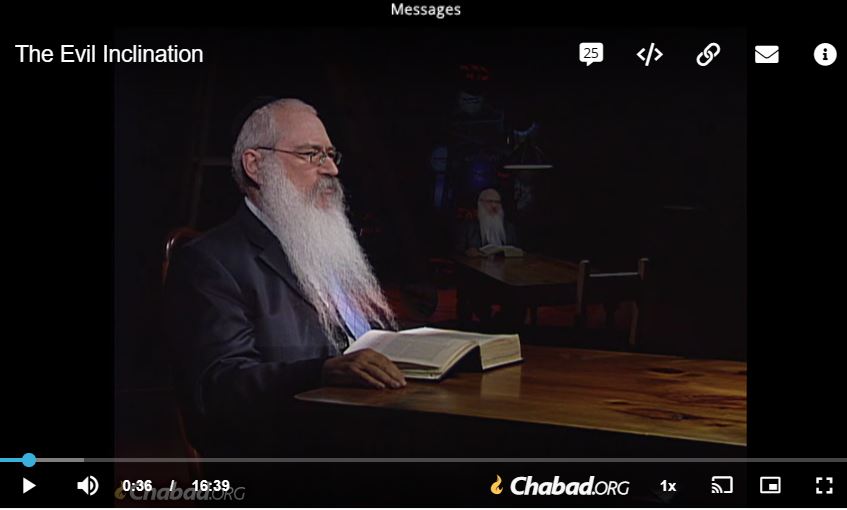בס”ד
Let’s start with the last one. What is free and do we have it? After all, G-d is Almighty, He created everything. The wind blows and the streams flow according to His will, like everything goes according to His will.
כֹּ֤ל אֲשֶׁר־חָפֵ֥ץ ד’ עָ֫שָׂ֥ה בַּשָּׁמַ֥יִם וּבָאָ֑רֶץ בַּ֝יַּמִּ֗ים וְכׇל־תְּהֹמֽוֹת׃
Whatever the L-rd desires He does
in heaven and earth,
in the seas and all the depths.
One of the things G-d wants is for man to have free will, and because G-d wants it, it is also in line with the above Psalm. Only free will makes us not robots, and able to do G-ds will because we want to serve and acknowledge Him as our King and Father.
But doesn’t Proverbs teach us that a person’s free will is restricted because G-d decides what happens?
לֵ֣ב אָ֭דָם יְחַשֵּׁ֣ב דַּרְכּ֑וֹ וַ֝ד’ יָכִ֥ין צַעֲדֽוֹ׃
A man may plot out his course,
But it is the L-rd who directs his steps.
The text demonstrates that humans have free will and can make choices. We can make a lot of plans and decisions, only to find out later that things did not go as planned. Rashi interprets this verse in a very good light. When man chooses to do good of his own free choice, G-d assists him in doing so. The inverse can also occur. Consider Pharaoh, who kept doing the wrong thing, and how G-d eventually hardened his heart so that he could continue down the wrong path. This leads us to:
רְאֵ֨ה נָתַ֤תִּי לְפָנֶ֙יךָ֙ הַיּ֔וֹם אֶת־הַֽחַיִּ֖ים וְאֶת־הַטּ֑וֹב וְאֶת־הַמָּ֖וֶת וְאֶת־הָרָֽע׃
See, I set before you this day life and prosperity, death, and adversity.
Because we have been endowed with free will and have the ability to choose, G-d has set before us the path of everlasting life by doing good actions and the path of death by doing wicked things.
So we have free will because we have the ability to choose. However, we are all aware that our free will is limited. When we make decisions, we are impacted by a variety of factors. Consider how marketing can influence our choices, our environment, our upbringing, and the moral standards and values we hold dear. So we can see that our free will is influenced by the world, and much more so by G-d.
That appears to us to be a contradiction. According to Rabbi Chanina [1]:
Everything is in the hands of heaven except awe of heaven, as it says: “And now, Israel, what does G-d want from you except that you be in awe of Him?”
That is our free choice, the difference between doing good and not doing good. The idea is not to choose the nicest apple between the two but to choose the one over which you can recite a bracha with the most intention. It is not about doing the dishes for a neighbor because it is a good thing to do, but because you recognize that you were created in the image of G-d and that assisting the neighbor is an expression of that.
We need an evil tendency to have an internal debate about what is good and evil, what to do, and why. The evil propensity is fueled primarily by our imagination:
If I take that drill home from work, how much easier will it be to complete tasks for my wife at home? My wife would be happy if this straightens the garden gates, her mother’s painting finally hangs on the wall, etc., be very happy about that, and it would be good for our marriage, blah blah blah, so it’s actually very good to bring the drill.
We see already with the first man – what if I were to take from the fruit then – … and the imagination fills it in further.
Satan is the angel who can seduce us by using our bad nature. We see this, for example, in de story of Job. G-d granted Satan permission to test Job to some extent. We see that Satan has the authority to produce events such as the loss of loved ones, loss of health, and so on in order to put Job to the test. Satan does not have the free will to test individuals without G-d’s consent. An angel accomplishes nothing more than what is asked of it. It was up to Job to deal with these problems and decide how to react to them. Would he keep praising G-d, or would he… We see that Job makes the proper decisions, and that G-d lavishly rewards him in the end. This brings us to one of the pillars of faith.
Maimonides puts it this way:
The eleventh principle is that God, may He be blessed gives reward to the one who does the commandments of the Torah and punishes the one who transgresses its prohibitions and that the great reward is the world to come, and that the strong punishment is being cut off. And we have already said about this matter that which will suffice. And the verse that indicates this principle is that which is stated (Exodus 32:32), “And now, if You will lift up their sin; but if not, erase me please,” and God, may He be blessed, answered him (Exodus 32:33), “The one who sins against Me, I will erase from My book” – this is a proof that that He knows the servant and the sinner to give reward to this [one] and punishment to that [one].
We, like Job, must deal with making choices all day, and we must resist/surpass the evil inclination in our debate. This cannot be accomplished by ignoring or deceiving him. The only way to win him over is to reveal your true self. A human being made in G-d’s image who is unable to make certain choices.[2]
If we have not succeeded in resisting our evil tendency, we must honestly repent for the erroneous choice(s) and return to the appropriate paths that G-d has for us.
Every night before going to bed, take stock of the day’s accounts, look at what went well, and evaluate what needs improvement or atonement. In the same way that we make an account of the day before going to bed, we make an account of the entire year in the month of Elul.
You can use the following prayer from AskNoah’s prayer booklet for this.[3]:
G-d, I have made mistakes, sinned, and voluntarily transgressed Your precepts and commandments, and I have done what is evil in Your sight, specifically with the following sin(s) )… [softly name the specific mistakes or sins in question].
I am sincerely ashamed of my sins, I repent of them, and I want to be firm in my resolve not to do them again.
Please G-d, in Your infinite grace and mercy, forgive my sins and transgressions and give me atonement, as it is written: Let the wicked forsake his way and the man of iniquity his thoughts; and let him return to G-d, and He will have mercy on you, and on our G-d, for He forgives abundantly.” And it is written, “Would I really take pleasure in the death of the wicked? Speaks the Eternal, is it not that he who repents of his ways, that he shall live?”
Let us confess our transgressions to Him who forgives those who honestly repent of their wrongdoing so that the judgment delivered on Rosh Hashanah will be favorable to us.
By Angelique Sijbolts
Sources:
[1]Megillah 25a:9
[2] The Evil Inclination
Video: The Evil Inclination – Chabad.org

[3] Prayers, Blessings, and Faith for Noahides – 7th English Edition
See also:
Chabad Article: Free Will In Judaism
Chabad Aricle: Why It’s Okay That Free Will Is Paradoxical
Q&A AskNoah: The Evil Inclination?
© Copyright, all rights reserved. If you enjoyed this article, we encourage you to distribute it further.
